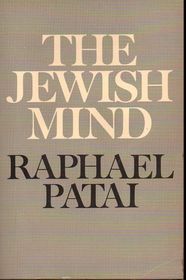Search -
The Jewish Mind
The Jewish Mind
Author:
First published in 1977, "The Jewish Mind" is a sweeping intellectual history of the Jews. Raphael Patai takes readers on an insightful journey through three millennia; examines six great historic encounters between the Jews, on the one hand, and the Canaanite culture, Hellenism, the Arab Golden Age, Renaissance Italy, Russian sectarianism, and ... more »
Author:
First published in 1977, "The Jewish Mind" is a sweeping intellectual history of the Jews. Raphael Patai takes readers on an insightful journey through three millennia; examines six great historic encounters between the Jews, on the one hand, and the Canaanite culture, Hellenism, the Arab Golden Age, Renaissance Italy, Russian sectarianism, and ... more »
ISBN-13: 9780684163215
ISBN-10: 0684163217
Pages: 635
Rating: ?
ISBN-10: 0684163217
Pages: 635
Rating: ?
0 stars, based on 0 rating
Publisher: Scribner Book Company
Book Type: Paperback
Members Wishing: 2
Reviews: Amazon | Write a Review
Book Type: Paperback
Members Wishing: 2
Reviews: Amazon | Write a Review




